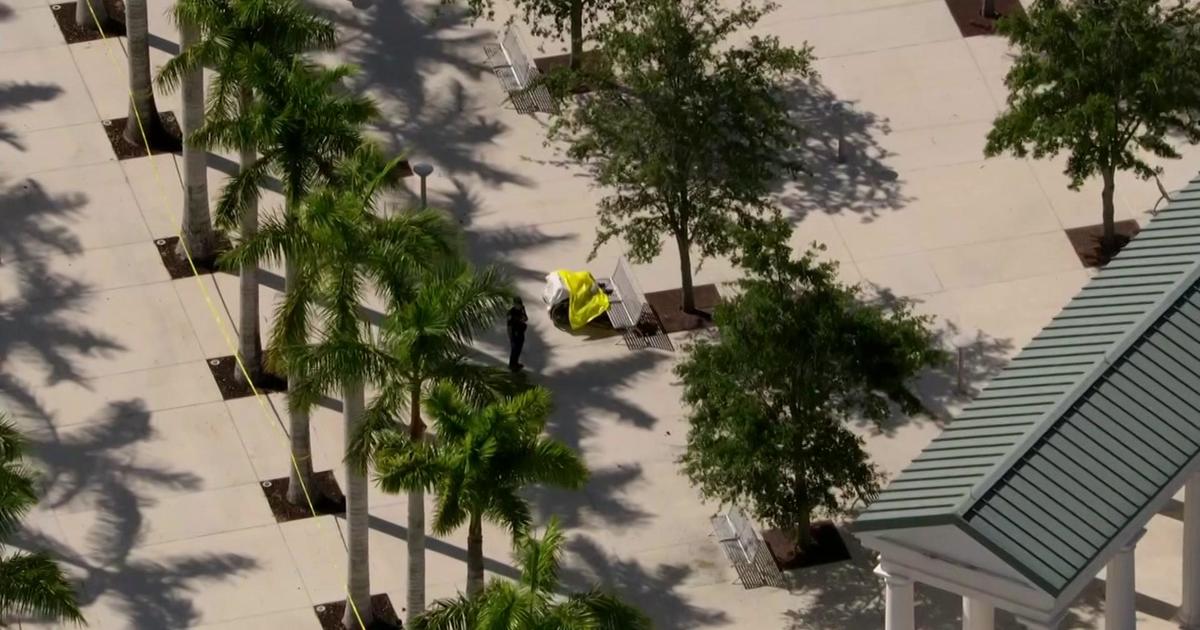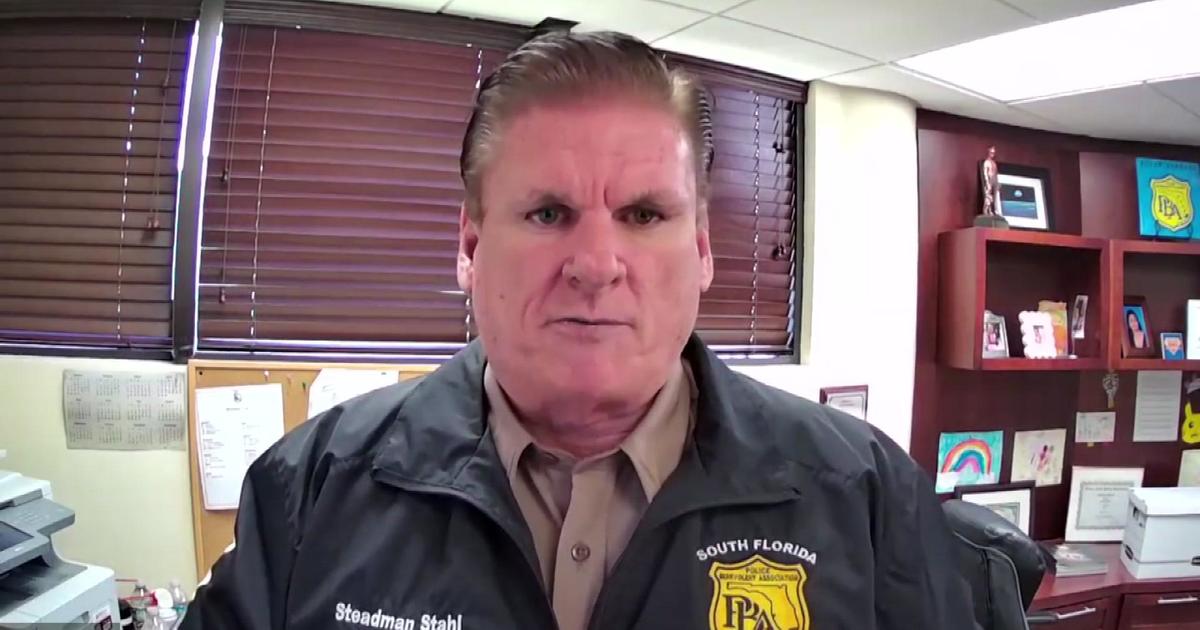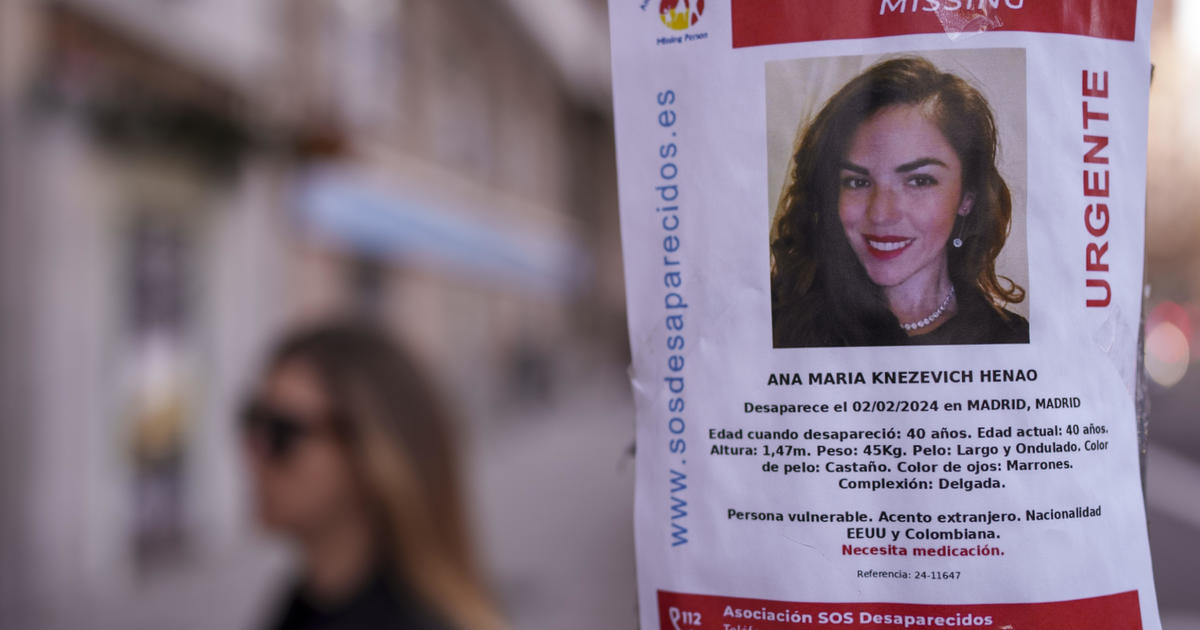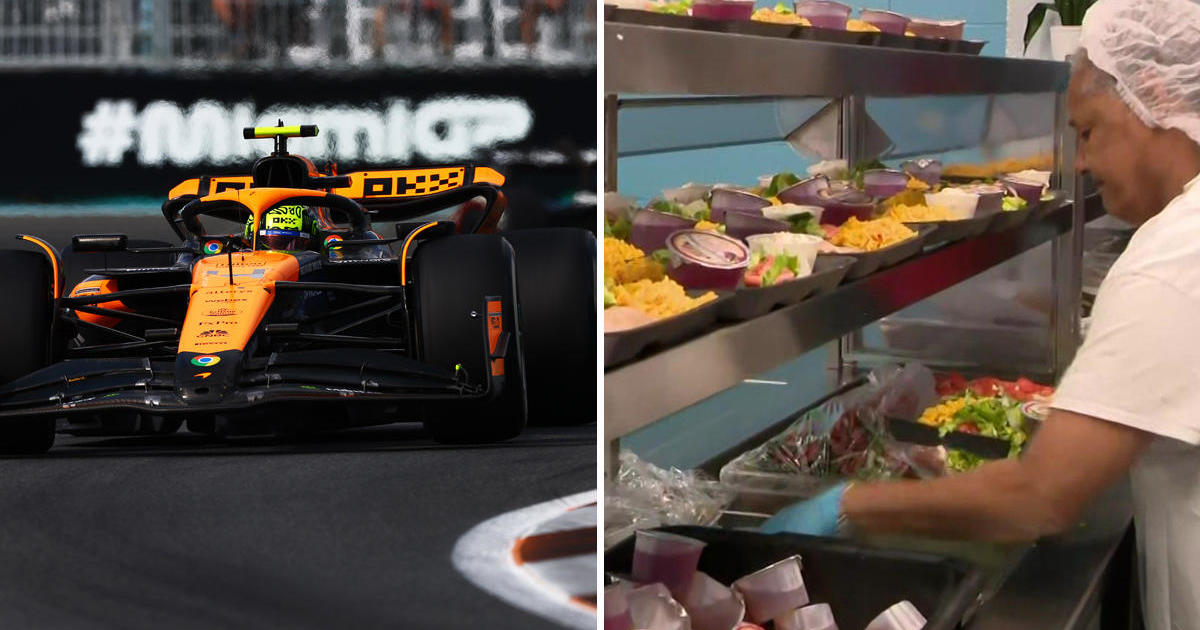Venezuelans Struggling In U.S. As Their Country Implodes
Follow CBSMIAMI.COM: Facebook | Twitter
MIAMI (CBSMiami/AP) — A large group crowds outside a church near Miami's international airport, chatting about family and friends left behind in Caracas, Valencia and Maracaibo as they wait more than an hour to receive rice, beans, yogurt and other food for their families.
At a storage space not far away, about 60 other Venezuelans line up for free sheets, towels, cookware and other goods donated to help them get on their feet in their new country.
Volunteers at South Florida social service organizations say they have seen an increasing number of Venezuelan seeking help. It's a reflection of the deteriorating situation in Venezuela, where the opposition has held massive protests against President Nicolas Maduro for his handling of the economy and a Supreme Court decision that briefly stripped the opposition-led congress of most of its power.
"I never thought I would need to receive food but the time has come and I don't have a choice," said 26-year-old Venezuelan lawyer Alejandra Mujica, who was among about 80 people waiting outside Our Lady of Guadalupe Catholic church one recent afternoon.
Venezuela was once among Latin America's most prosperous countries, with the world's largest proven oil reserves. During good times, Venezuelans who came to the United States largely did so as tourists or to go shopping.
But the Venezuelan economy is now in freefall due to a plunge oil prices and poor economic planning under the socialist government created by the late President Hugo Chavez, who took office in 1999, and continued under his successor, Maduro. The situation has grown worse because of capital flight and a crime rate that is among the highest in the world.
Venezuela's economy shrank 18 percent in 2016 and is expected to contract another 8 percent this year. It has the highest inflation of any country and its people scrounge for basic necessities.
About 18,000 Venezuelans applied for political asylum in the U.S in 2016, the largest group by nationality and more than double the 7,300 applications Venezuelans filed in 2015. Many of them are expected to be denied.
The Venezuelans who came to United States during the Chavez years tended to be wealthier, often members of the elite whose businesses had been seized in expropriations or whose economic clout was perceived as a threat. In the U.S., they often obtained legal residency with investment visas, opening enterprises in South Florida, where most have settled.
Many of the Venezuelans now seeking food and other assistance in South Florida were once middle class professionals who decide they could no longer tolerate increasing misery, crime, food shortages and lack of medical care in their homeland.
"Venezuela has become unlivable," said Javier Corrales, a Venezuelan professor of Latin American studies at Amherst College in Massachusetts.
Mujica, the young lawyer seeking help at the church, said she barely survived back in the city of Valencia, waiting in two-day lines to buy whatever was available in the supermarket. After she was robbed of her phone at gunpoint, she and her husband decided to flee in September with savings of $3,500 and not much else. "There was no way to go on," she said.
At the storage space, 29-year-old Carmen Elena Rodriguez also found herself in unfamiliar territory. She earned a master's degree in education in Caracas and now sells drinks at a farmers market to support herself. "It's not easy what we are going through, but this assistance makes the road a little easier," she said as she picked up donated dishes, a lamp and other items.
Often the economic and political motivations Venezuelans give for leaving their homeland are hard to separate.
Andreina Molina, 34, said she and her husband sold their electronics store and moved to the U.S. last year in part because of the economic deprivation and the crime, but also because she belonged to an opposition party and had been threatened for participating in anti-government marches.
"I came because of the insecurity, because of the political persecution, the lack of food and for my kids," she said.
They spent their $10,000 in savings on the birth of a baby and other medical care. Her husband now drives a tow truck and she sells homemade pastries. "It has hit us hard. Sometimes we don't even have enough to pay the rent," Molina said.
The number of Venezuelans in the U.S. has tripled to around 273,000 since the year after Chavez was elected. The vast majority have settled in the Miami area, which has a large number of people from Latin America but a high cost of living.
It is common here to encounter Venezuelans who are former accountants and managers working in low-level jobs or trying to make ends meet by pulling shifts with ride-sharing companies such as Uber and Lyft. Some do not have legal immigration status and can't work legally at all.
"They sell their homes, they sell their cars and they come here with a little bit of capital that vanishes in a matter of months," said Eduardo Gamarra, a professor of political science at Florida International University.
Amid these struggles, charitable organizations have emerged to help them. A group whose name translates as Venezuelan Roots was started last year to provide clothing and household items at the storage space. The Catholic group St. Vincent de Paul also has helped the Venezuelans. Most of the need is concentrated in Doral, a city near the airport, where many of them live.
Patricia Andrade, one of the founders of Venezuelan Roots, said she sees a desperation in the newer arrivals that wasn't there with those who came earlier.
"Before, the people prepared for their move," Andrade said. "Today, they are just looking to escape the horror."
(TM and © Copyright 2017 CBS Radio Inc. and its relevant subsidiaries. CBS RADIO and EYE Logo TM and Copyright 2017 CBS Broadcasting Inc. Used under license. All Rights Reserved. This material may not be published, broadcast, rewritten, or redistributed. The Associated Press contributed to this report.)



